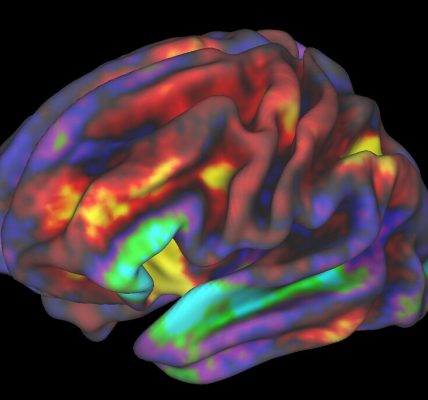Early-Childhood Smartphone Use Doubles Adult Mental Health Problems

In what claims to be “the world’s largest data,” a new report from the Global Mind Project presents a shocking correlation: Suicidal ideation rates double for people who start using smartphones at age five or six compared with those who start using them at age 13.
The analysis of data covering over 100,000 18-24-year-olds found the following alarming correlations:
48% of females aged 18–24 who acquired a smartphone at age five or six report suicidal thoughts, compared to 28% who acquired a smartphone at age 13. Among males, the corresponding figures are 31% and 20%, respectively.
The pattern “is consistent across every region, culture and language,” say researchers from the Sapien Labs Center for Human Brain and Mind. Their survey now has more than 2 million takers representing 163 nationalities. How they managed to tie global mental health to the age of smartphone adoption is a circuitous route worth examining.
According to the Sapien Labs website, the effort began on a lark, more or less, to compare EEG readings between urban dwellers and rural dwellers in India. The results were so surprisingly different, it led Tara Thiagarajan, a Ph.D. in neuroscience from Stanford University, to shift her energies from microfinance to collecting and analyzing the data collected from the world’s largest survey.
Dr. Thiagarajan has gone from recording EEGs to using an assessment that supposedly reliably tracks mental health. The assessment is called the Mind Health Quotient (MHQ) and is described as:
[A]n online, self-report assessment tool that captures 47 social, emotional, cognitive and physical functions, representing a comprehensive set of positive functionings and negative symptoms, that draw from psychiatric and neuroscientific frameworks.
That’s an awful lot of insight from 47 self-reported questions. The assessment was first reported on in JMIR Mental Health in early 2020. This “development and usability study” of the Mind Health Quotient is authored by Dr. Thiagarajan. I could not find other studies at Google Scholar that used the MHQ assessment.
“The MHQ is an assessment of mental health and wellbeing that comprehensively covers symptoms across 10 major psychiatric disorders as defined by the DSM-5,” begins the description of MHQ scores. Dr. Thiagarajan goes on to explain the MHQ is “a freely available anonymous online assessment that, on completion, provides a score to the individual that places them on a spectrum from Distressed to Thriving along with a personal report spanning their various dimensions of mental wellbeing with strategies for improvement.”
In a PDF examination of the validity of the MHQ score, the Sapien Labs researchers offer this statistic:
[T]hose in the Distressed category had an average productivity loss of 15.2±0.5 days per month with 89.08% (8,986/10,087) mapping to 1 or more DSM-5 based clinical disorders.
Fifteen days each month is a lot of lost productivity, especially considering the average month has only 20 working days. Distressed, indeed!
A random sample of 11,000 MHQ scores was cross-checked against DSM-5 to determine the accuracy of the “distressed” and “at-risk” results of the MHQ. 95% of those designated as distressed qualified for at least one DSM-5 mental health disorder. Only 1.4% of those with a positive MHQ score qualified for a DSM-5 mental health disorder, according to Sapien Labs.
I would imagine those in the “distressed” category, if they are missing 15 days of work each week on average, likely match up for more than one DSM-5 mental health disorder. None of the Sapien Labs studies I found indicate the number of multiple disorder results for people in the “distressed” category, or report the frequency of the other five categories of MHQ scores. Which disorders does MHQ statistically match up well with?
A review of the recent Global Mind Project study in Study Finds noted that early smartphone use did not just affect suicidal ideation rates, but also other emotional states:
Those who got phones before age 13 show higher rates of aggression, feelings of detachment from reality, and hallucinations. Among specific mental health functions, early smartphone users struggle more with self-image, self-worth, emotional control, and resilience — particularly females. Males show greater difficulties with stability, calmness, and empathy.
Study Finds goes on to suggest that early-childhood smartphone use:
- is associated with an increase in cyberbullying
- results in poorer family relationships
- contributes to higher rates of disrupted sleep
In a video on YouTube dated September 4, 2024, Dr. Thiagarajan indicates that Sapien Labs and the Global Mind Project are now partnering with John Hopkins University’s Center for Communications Programs, which has a strong international presence. Maybe Johns Hopkins can bring a little discipline and refinement to the Global Mind Project, with randomized trials, control groups — even EEGs — to corroborate the findings of the 47-question online quiz.
In the meantime, if you know someone who has thoughts of suicide, please tell them about the 988 crisis hotline, where they can get help in an emergency.
Written by Steve O’Keefe. First published August 5, 2025.
Sources:
“Protecting the Developing Mind in a Digital Age: A Global Policy Imperative,” Journal of Human Development and Capabilities, July 20, 2025.
“Kids Who Get Smartphones Before 13 Face Skyrocketing Suicide Risk, Study Warns,” Study Finds, July 28, 2025.
“Mind Matters | Sapien Labs + John Hopkins University, Center for Communication Programs,” YouTube, September 4, 2024.
Image Copyright: komokvm.




